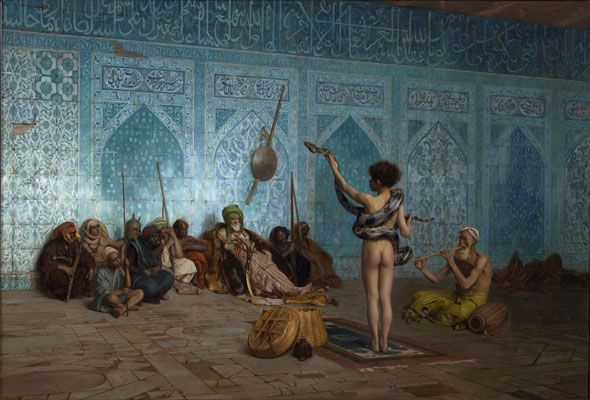
When the Palistinian-American scholar Edward Said published his study Orientalism in 1978, he coined one of the most influential theoretical concepts of the last decades, which shaped the outlook and orientation of fields such as literary and cultural studies, and, first and foremost, postcolonial studies.
'Orientalism' refers to the geography and culture of large parts of Asia and North Africa, plus some of what we now think of as Eastern Europe. Above all, from a British point of view, orientalism connotes foreignness or otherness — things decidedly not British — and it sometimes seems as if the "East" signified by "Orient" is not only what is east of Europe and the Mediterranean but everything east of the English Channel. What is more, the Romantic Period in Britain (ca. 1780-1830) is now recognized as a time of global travel and exploration, accession of colonies all over the world, and development of imperialist ideologies that rationalized the British takeover of distant territories. Re-contextualizing Romantic Orientalism thus gives it a decidedly contemporary and political character involving questions of national identity, cultural difference, the morality of imperialist domination, and consequent anxiety and guilt concerning such issues. It should thus not come as a surprise that orientalist rhetoric, discourses, and narratives can be found in a large variety of Romantic writing, including historiography, poetry, drama, and Gothic fiction.
This seminar introduces students to the theoretical concept of Orientalism as put forward by Edward Said (1978) as well as to the literature of the Romantic period.
Please buy and read the following books before the term starts:
Edward Said, Orientalism. Western Conceptions of the Orient. London: Penguin, 2013 (ISBN 978-0141187426)
William Beckford, Vathek. Oxford: OUP, 2013 (ISBN 978-0199576951)
- Dozent: Johannes Schlegel
